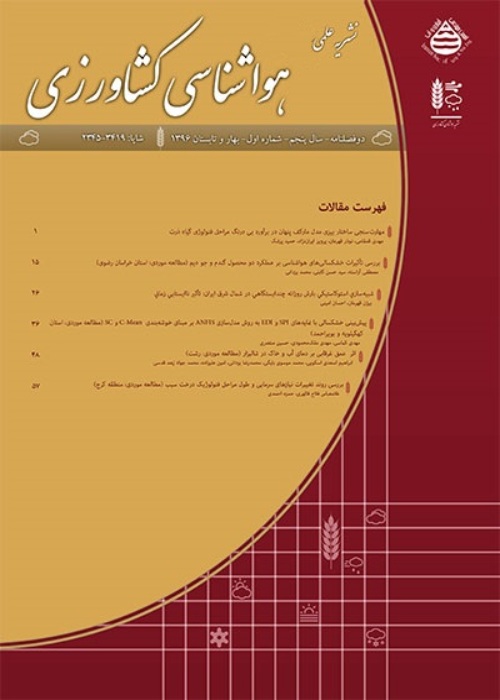Water Crisis
The recent statement of the Iranian Academy of Sciences on the irreversibility of the country's water resources situation has a damage-controlling vision of how water is used and allocated in various consumption sectors, especially in the agricultural one. The main concern is that in recent decades, the amount of water abstraction from renewable resources has exceeded the allowable limit, and this has not only led to a quantity loss of water storage, but it also, in some places, has led to a decline in water quality as well. The statement took into consideration the causes of such situations, and also made available considerable useful and appropriate approaches. The present memoir, in line with confirming the provisions of the statement, presents a picture of the limitation of the available facilities and possible solutions. In Iran, during the last sixty years, average rainfall has fluctuated between 164 and 342 mm per year (average annual rainfall within the country's borders) and the number of wet and dry years has been almost equal. It is obvious that if in the past we had more extended and dense forests and full-fledged aquifers from the same amount and the same rainfall system, but nowadays it is no longer the case, it should be mainly due to consumption mismanagement and reckless and unpredictable harvests from underground aquifers. Therefore, now we have no choice except using each drop of water more efficiently by making coherent laws, creating an effective water consumption culture, using successful global experiences, and taking into account the climatic advantages for crops cultivations, especially for more water-consuming crops such as rice. We also should rely on young experts and researchers’ problem-solving potential in effectiveness of water consumptions. By the time in balancing water harvesting and water consumption step by step, it is a must to look for new water resources to compensate water shortages. Although measures such as cloud seeding or deep and fossil water extraction cannot be approved, desalination and the use of open waters in the southern seas for drinking and industrial purposes could be considered.
- حق عضویت دریافتی صرف حمایت از نشریات عضو و نگهداری، تکمیل و توسعه مگیران میشود.
- پرداخت حق اشتراک و دانلود مقالات اجازه بازنشر آن در سایر رسانههای چاپی و دیجیتال را به کاربر نمیدهد.


